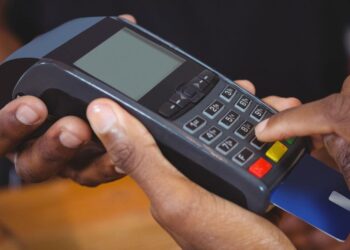Nigeria’s currency outside the banking system hit an all-time high of N4.2 trillion as of October 2024, despite several policies aimed at sterilizing cash.
The latest money supply data from the Central Bank shows that total cash in circulation and outside the banking system has now surpassed N4 trillion, marking a steady growth that began following the cancellation of the controversial cash policy implemented by the previous government.
Nigeria has now gone from an all-time low of N792 billion in January 2023—when new Naira notes were introduced, and older ones were slated for withdrawal—to the record N4.2 trillion.
Despite this increase, Nigerians continue to grapple with the menace of POS operators, who charge as much as 5% for cash withdrawals, as Automated Teller Machines (ATMs) remain persistently short of cash.
What the data is saying
According to data seen by Nairametrics, total currency outside the banking system rose to N4.2 trillion in October 2024, up from N4 trillion in September 2024.
- Meanwhile, total currency in circulation also grew in October, rising to N4.5 trillion from N4.3 trillion recorded a month earlier.
- Currency outside banks refers to all cash held by individuals, businesses, and institutions that is not stored within the banking system.
- However, currency in circulation includes cash held by individuals, businesses, and institutions, as well as cash held by banks as vault cash.
Total money supply in the country stood at N107.6 trillion for the month, slightly lower than the N109.4 trillion reported in the previous month.
Hawkish policy not impacting currency in circulation?
The steady rise in currency outside banks and in circulation appears to contrast with the Central Bank’s hawkish monetary policy, which has largely focused on sterilizing cash from the system.
- For example, at the Monetary Policy Committee meeting held on September 24, 2024, the apex bank raised the Cash Reserve Ratio for Deposit Money Banks by 500 basis points, from 45% to 50%, and for Merchant Banks by 200 basis points, from 14% to 16%.
- The move was interpreted as part of the Bank’s plan to impose strict policies limiting the amount of cash in circulation.
- However, with a 25% rise in currency outside banks this year, ample cash remains in the economy and in the hands of Nigerians, likely fueling inflation, which has remained persistently high throughout the year.
P.OS operators hold sway
Meanwhile, despite the record-high currency in circulation, Nigerians still struggle to find cash at ATMs, with POS operators dominating cash disbursements.
- Long queues at ATMs remain a common sight, with many machines often out of service or displaying “no cash available” notices, further exacerbating public frustration.
- In many instances, individuals are forced to rely on POS operators, who charge exorbitant fees, sometimes as high as 5% to 10% of the withdrawal amount, making access to cash both costly and inconvenient for the average Nigerian.
- Several social media complaints by Nigerians suggest collusion between banks and POS operators, who allegedly favor supplying cash to the latter in exchange for high fees.
- Critics argue that this practice incentivizes POS operators to hoard cash, limiting supply to ATMs and forcing consumers to resort to these alternative channels.
This has led to widespread calls for regulatory intervention to ensure equitable access to cash and curb the exploitative practices reportedly perpetrated by some stakeholders in the system.





















